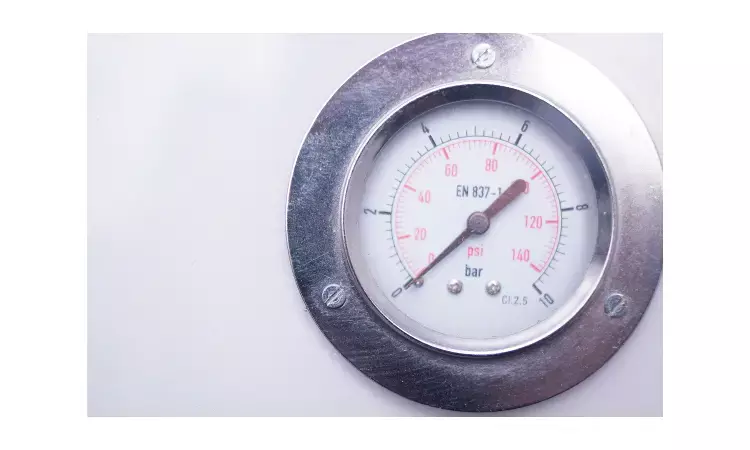- Home
- Medical news & Guidelines
- Anesthesiology
- Cardiology and CTVS
- Critical Care
- Dentistry
- Dermatology
- Diabetes and Endocrinology
- ENT
- Gastroenterology
- Medicine
- Nephrology
- Neurology
- Obstretics-Gynaecology
- Oncology
- Ophthalmology
- Orthopaedics
- Pediatrics-Neonatology
- Psychiatry
- Pulmonology
- Radiology
- Surgery
- Urology
- Laboratory Medicine
- Diet
- Nursing
- Paramedical
- Physiotherapy
- Health news
- Fact Check
- Bone Health Fact Check
- Brain Health Fact Check
- Cancer Related Fact Check
- Child Care Fact Check
- Dental and oral health fact check
- Diabetes and metabolic health fact check
- Diet and Nutrition Fact Check
- Eye and ENT Care Fact Check
- Fitness fact check
- Gut health fact check
- Heart health fact check
- Kidney health fact check
- Medical education fact check
- Men's health fact check
- Respiratory fact check
- Skin and hair care fact check
- Vaccine and Immunization fact check
- Women's health fact check
- AYUSH
- State News
- Andaman and Nicobar Islands
- Andhra Pradesh
- Arunachal Pradesh
- Assam
- Bihar
- Chandigarh
- Chattisgarh
- Dadra and Nagar Haveli
- Daman and Diu
- Delhi
- Goa
- Gujarat
- Haryana
- Himachal Pradesh
- Jammu & Kashmir
- Jharkhand
- Karnataka
- Kerala
- Ladakh
- Lakshadweep
- Madhya Pradesh
- Maharashtra
- Manipur
- Meghalaya
- Mizoram
- Nagaland
- Odisha
- Puducherry
- Punjab
- Rajasthan
- Sikkim
- Tamil Nadu
- Telangana
- Tripura
- Uttar Pradesh
- Uttrakhand
- West Bengal
- Medical Education
- Industry
Hyperbaric oxygen therapy may improve delayed neuropsychiatric sequelae after CO poisoning: Study

Taiwan: A retrospective review study by Shu-Chen Liao and team revealed that early hyperbaric oxygen therapy (HBOT) significantly improved delayed neuropsychiatric sequelae (DNS) symptoms in those who developed DNS after carbon monoxide (CO) poisoning. Also, treatment effects sustained for 1 year after DNS diagnosis. The findings of the study are published in the journal Scientific Reports.
Hyperbaric oxygen therapy (HBOT) is a well-established treatment for decompression sickness, potential risk of scuba diving. Evidence from clinical studies in recent years suggests that hyperbaric oxygen therapy may be a treatment for repairing nerves after brain injury and neuropsychiatric diseases.
The objective of the study was to assess the real-world effectiveness of hyperbaric oxygen therapy HBOT on delayed neuropsychiatric sequelae DNS after CO poisoning.
The study was a retrospective review of patients with CO poisoning admitted to Linkou Chang-Gung Memorial Hospital, Taiwan's largest medical center, during 2009–2015. It included patients developing DNS after CO poisoning and compared improvements in neuropsychiatric function, with and without HBOT, after 12 months post-DNS to understand differences in recovery rates. DNS improvement-associated factors were also evaluated. They used receiver operating characteristic (ROC) curve analysis to assess the role of time elapsed between DNS diagnosis and HBOT initiation in predicting DNS improvement.
A total of 62 patients developed DNS, of whom 11 recovered while the rest did not.
The results of the study were:
• Possible factors predicting DNS improvement included receiving HBOT post-DNS (72.7% vs 25.5%).
• Treatment with more than three HBOT sessions during acute stage CO poisoning (81.8% vs 27.5%).
• The relevant area under the ROC curve was 0.789, and the best cut-off point was 3 days post-DNS diagnosis, with 87.5% sensitivity and 61.5% specificity.
Liao and the team concluded that "Early HBOT in patients who developed DNS after CO poisoning significantly improved their DNS symptoms, with treatment effects sustained for 1 year after DNS diagnosis."
Reference:
Liao, SC., Shao, SC., Yang, KJ. et al. Real-world effectiveness of hyperbaric oxygen therapy for delayed neuropsychiatric sequelae after carbon monoxide poisoning. Sci Rep 11, 19212 (2021). https://doi.org/10.1038/s41598-021-98539-y
Medical Dialogues consists of a team of passionate medical/scientific writers, led by doctors and healthcare researchers. Our team efforts to bring you updated and timely news about the important happenings of the medical and healthcare sector. Our editorial team can be reached at editorial@medicaldialogues.in.
Dr Kamal Kant Kohli-MBBS, DTCD- a chest specialist with more than 30 years of practice and a flair for writing clinical articles, Dr Kamal Kant Kohli joined Medical Dialogues as a Chief Editor of Medical News. Besides writing articles, as an editor, he proofreads and verifies all the medical content published on Medical Dialogues including those coming from journals, studies,medical conferences,guidelines etc. Email: drkohli@medicaldialogues.in. Contact no. 011-43720751


